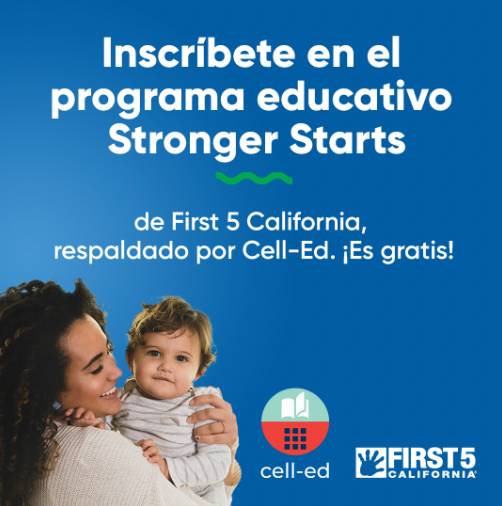Quieres lo mejor para tu pequeño, y si amamantas, una nutrición adecuada puede hacer una gran diferencia positiva en su crecimiento y desarrollo. Comer una dieta equilibrada es súper importante porque te ayuda a sentirte bien y le da a tu bebé todos los nutrientes que necesita para crecer fuerte y saludable. Aquí tenemos algunos consejos sobre qué comer más, qué limitar y cómo asegurarte de obtener todos los nutrientes que necesitas, sin importar tus preferencias dietéticas.

Cuando estás amamantando, tu cuerpo necesita alimentos nutritivos y sustanciosos para ayudar a alimentar tu energía, apoyar la producción de leche y nutrir tu cuerpo durante la recuperación del posparto. Los Centros para el Control y la Prevención de Enfermedades de EE. UU (CDC, por sus siglas en inglés) recomiendan que comas aproximadamente 340–400 calorías extra al día. Pero, ¿cómo se ve eso realmente?
Para una botana equilibrada, prueba:
1 rebanada de pan integral con 2 cucharadas de mantequilla de cacahuete
1 plátano pequeño
1 taza de leche de soya baja en grasa o enriquecida
Si eres muy activa, prueba:
1 barrita de granola
1 taza de yogur griego natural o ligeramente endulzado
Una porción de almendras
¿No tienes tiempo para una botana? Intenta añadir esto a las comidas:
Añadir rodajas de aguacate a un sándwich o pan tostado
Añadir queso a una ensalada o huevos
Añadir una porción extra de arroz integral o quinoa
Agregar estos nutrientes adicionales en tu rutina a lo largo del día puede ser una excelente manera de asegurarte de que estás comiendo lo suficiente para alimentar a dos.
Cuando se trata de la lactancia, alimentar tu cuerpo con los alimentos adecuados es clave. Estos alimentos no solo te ayudan a sentirte lo mejor posible, sino que también le brindan a tu bebé nutrientes esenciales para el crecimiento y el desarrollo. ¡Es una situación en la que todos ganan! Exploremos algunas opciones deliciosas y nutritivas que puedes disfrutar más durante este momento especial.
Proteínas: Las carnes magras como el pollo y el pavo, los huevos, los frijoles y las lentejas son excelentes fuentes de proteínas, que son importantes para mantener tu masa muscular durante la lactancia.
Cereales integrales y verduras: Los cereales integrales como el arroz integral y la avena, junto con un arcoíris de frutas y verduras, están llenos de vitaminas y minerales. Además, pueden darle sabor a tu leche materna, lo que puede hacer que los bebés estén más dispuestos a probar una mayor variedad de alimentos cuando comienzan a comer sólidos.
Lácteos: La leche, el queso y el yogur están llenos de calcio, lo cual es excelente para ti y para el desarrollo de tu bebé, como la construcción de huesos y dientes fuertes.
Si eres vegetariana o vegana, ¡no te preocupes! Aún puedes obtener todos los nutrientes que necesitas:
Hierro: Las lentejas, los frijoles y las verduras de hoja verde, como las espinacas, son ricas en hierro. Combínalas con alimentos ricos en vitamina C, como las naranjas, para ayudar a tu cuerpo a absorber mejor el hierro.
Proteínas: Prueba productos de soya (como el tofu), nueces, semillas y cereales integrales para obtener proteínas adicionales. Si comes huevos o lácteos, ¡esas también son excelentes fuentes de proteínas!
Calcio: Las verduras de hoja verde oscuro como la col rizada y el brócoli, y bebidas/alimentos como la leche de soya y el tofu son excelentes fuentes de calcio.
Aunque la mayoría de los alimentos son perfectamente seguros para disfrutar durante la lactancia, hay algunos con los que quizás quieras tener precaución. Estos alimentos pueden afectar a tu bebé de diferentes maneras:
Cafeína: Intenta limitar tu consumo a 2 o 3 tazas de café al día. Demasiada cafeína puede irritar a tu bebé o mantenerlo despierto.
Alcohol: Es mejor evitar el alcohol durante la lactancia. Si tomas una bebida, espera al menos dos horas antes de amamantar para asegurarte de que ya no esté en tu sistema.
Pescado con alto contenido de mercurio: Algunos pescados, como el atún y la caballa real, tienen mucho mercurio, lo cual no es bueno para el cerebro en desarrollo de tu bebé. Opta por pescados como el salmón y las sardinas, que son opciones más seguras y pueden apoyar el sistema inmunitario y el desarrollo de la médula espinal.
Asegurarte de obtener todos los nutrientes necesarios durante la lactancia a veces puede ser un desafío, incluso con una dieta equilibrada. Ahí es donde los suplementos pueden ser útiles. Tu médico o proveedor de atención médica podría recomendarte un multivitamínico o suplementos específicos para llenar cualquier deficiencia nutricional, especialmente si sigues una dieta vegana. Los nutrientes clave que debes asegurarte de que estás obteniendo suficiente incluyen vitamina B12, hierro y omega-3, ya que desempeñan funciones vitales tanto en tu salud como en el desarrollo de tu bebé:
La vitamina B12 es esencial para el desarrollo cerebral de tu bebé y la formación de glóbulos rojos. Las madres lactantes, especialmente aquellas que siguen una dieta vegetariana o vegana, podrían estar en riesgo de deficiencia de B12 porque esta vitamina se encuentra principalmente en productos animales. Los signos de niveles bajos de B12 pueden incluir cansancio, debilidad y cambios de humor.
El hierro es esencial para producir hemoglobina, que ayuda a transportar oxígeno en la sangre. La lactancia podría agotar las reservas de hierro, especialmente si tuviste una pérdida de sangre significativa durante el parto. Los niveles bajos de hierro pueden provocar anemia, causando síntomas como cansancio, debilidad y piel pálida. Si notas estos signos, podría valer la pena hablar sobre los suplementos de hierro con tu proveedor de atención médica.
Los ácidos grasos omega-3, particularmente el ácido docosahexaenoico (DHA), son importantes para el desarrollo del cerebro y ojos de tu bebé. Estos se encuentran muchas veces en el pescado. Si no consumes suficiente pescado bajo en mercurio, es posible que no estés obteniendo suficientes omega-3 o DHA. Los signos de niveles bajos de omega-3 pueden incluir piel seca, cansancio y cambios de humor.
Recuerda, siempre es mejor consultar con tu proveedor de atención médica antes de tomar cualquier suplemento. Ellos pueden ayudarte a encontrar el mejor método adaptado a tus necesidades individuales, asegurando que tanto tú como tu bebé estén bien apoyados durante este momento especial.
La lactancia puede darte más sed, por lo que es importante mantenerte hidratada. La hidratación te ayuda a sentirte con más energía y contribuye a tu bienestar general. Si no tomas suficiente agua, podrías tener deshidratación, lo que puede provocar cansancio, dolores de cabeza y mareos.
La deshidratación también puede afectar tu suministro de leche. Ya que la leche materna es aproximadamente 80% agua, tu cuerpo necesita suficientes líquidos para producirla. Sin una hidratación adecuada, puede ser más difícil para tu cuerpo producir la cantidad de leche que tu bebé necesita.
Una buena regla general es tomar un vaso de agua cada vez que des de lactar. Esto puede servir como un recordatorio útil para tomar suficientes líquidos. Si tu orina se ve de color amarillo oscuro, es una señal de que necesitas más líquidos. Ten como objetivo que la orina sea clara o de color claro como señal de una hidratación adecuada.
Aunque el agua es la mejor opción, también puedes beber otros líquidos hidratantes como leche o tés de hierbas. Solo ten cuidado con las bebidas con azúcar añadido o cafeína, ya que pueden tener otros efectos en ti y en tu bebé, como mencionamos anteriormente.
Para obtener recursos adicionales sobre la salud de la mujer y la lactancia, consulta nuestra página de Apoyo prenatal, de salud femenina y para la lactancia aquí.






